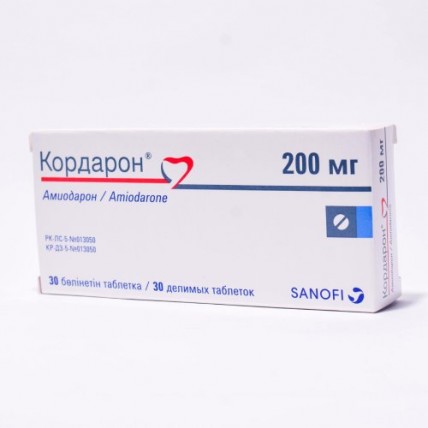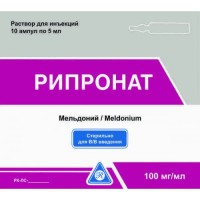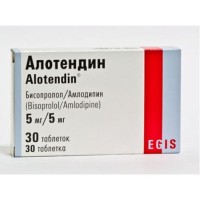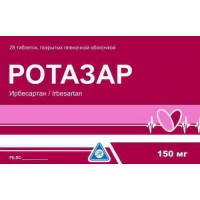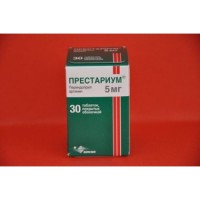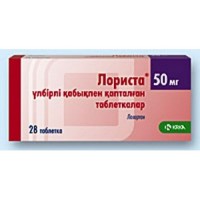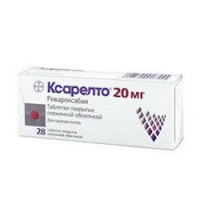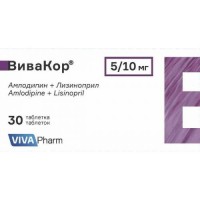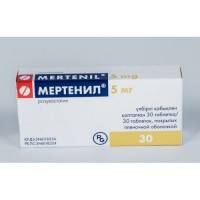Cordarone® (Amiodarone) 200 mg, 30 tablets
- $17.40
What is Cordarone® (Amiodarone)?
Cordarone® is a potent antiarrhythmic medication used to manage and prevent serious heart rhythm disorders.
It is particularly effective for life-threatening conditions such as ventricular tachycardia, ventricular fibrillation, and atrial fibrillation.
The active ingredient, amiodarone hydrochloride, works by correcting irregular electrical signals in the heart, helping to maintain a normal and steady heartbeat.
Cordarone® is typically prescribed for long-term management of arrhythmias, and its effects can last even after the medication has been discontinued due to its prolonged presence in the body
How does Cordarone® work?
Cordarone® belongs to the Class III antiarrhythmic drugs, but it also exhibits properties of Class I, II, and IV antiarrhythmics.
This broad action makes it unique among heart rhythm drugs.
Specifically, it works by:
- Blocking potassium channels, which prolongs the heart's repolarization phase, helping prevent abnormal electrical activity.
- Inhibiting sodium channels, slowing the transmission of electrical signals, which stabilizes the heart’s rhythm.
- Acting on calcium channels, reducing the heart's contractility and slowing the heart rate.
- Providing non-competitive beta-blocking effects, which further slow the heart rate and reduce the workload on the heart.
These combined actions make Cordarone® effective not only in treating irregular heartbeats but also in reducing episodes of chest pain (angina) and improving blood flow in patients with coronary artery disease
What is the composition of Cordarone® tablets?
Each Cordarone® tablet contains:
- Active ingredient: Amiodarone hydrochloride 200 mg.
- Other ingredients: Lactose monohydrate, maize starch, magnesium stearate, povidone K90F, and anhydrous colloidal silicon dioxide.
What are the pharmacokinetics of Cordarone®?
When taken orally, amiodarone’s absorption varies between 30% to 80%, with an average bioavailability of about 50%.
Peak plasma concentrations are reached within 3 to 7 hours after ingestion, although the full therapeutic effect typically develops over a week or two of consistent use.
Amiodarone has a long half-life, ranging from 20 to 100 days, depending on the patient.
Due to its slow accumulation and prolonged retention in tissues, especially in fat, liver, lungs, spleen, and cornea, the drug remains effective even after stopping.
How is Cordarone® metabolized and excreted?
Amiodarone is metabolized in the liver and broken down into an active metabolite, desethylamiodarone.
The drug is primarily excreted through the bile and feces.
Hemodialysis does not remove amiodarone or its metabolites from the body.
The drug’s elimination is slow, taking months to fully clear the system after discontinuation.
What are the benefits of Cordarone®?
- Control of life-threatening arrhythmias: Cordarone® is used in preventing dangerous conditions like ventricular tachycardia, ventricular fibrillation, and atrial fibrillation, especially in patients who have not responded well to other treatments.
- Extended action: Thanks to its long half-life, Cordarone® provides prolonged protection against arrhythmias, even if a dose is missed or therapy is stopped.
- Treatment for ischemic heart disease: The drug can be used in patients with ischemic heart disease, improving blood flow and reducing the oxygen demand of the heart muscle.
- Antianginal properties: Cordarone® has additional benefits of reducing chest pain by dilating the coronary arteries, enhancing oxygen supply to the heart.
How should Cordarone® be taken?
Cordarone® is taken orally in tablet form, usually before meals with a glass of water.
The dosing regimen is tailored to the individual’s condition and response to the medication.
- Loading dose: This involves higher doses in the initial phase to quickly reach effective blood levels. Typically, the dosage ranges between 600 to 800 mg per day, divided into several doses, until a total of 10 grams is reached, which takes around 5 to 14 days.
- Maintenance dose: After the loading phase, the dose is reduced to between 100 to 400 mg per day, depending on the patient’s response. The lowest effective dose is always preferred to minimize side effects.
Because of its long-lasting effects, Cordarone® can sometimes be taken every other day or with breaks of two days per week, especially in maintenance therapy. The average daily dose is around 400 mg.
Are there any precautions when using Cordarone®?
- Thyroid monitoring: Due to its iodine content, Cordarone® can interfere with thyroid function, leading to hypothyroidism (low thyroid activity) or hyperthyroidism (overactive thyroid). Regular monitoring of thyroid hormone levels is recommended, as imbalances can occur even after discontinuation.
- Lung function: Cordarone® may cause serious lung conditions, such as pulmonary fibrosis or pneumonitis. Any new or worsening symptoms like shortness of breath or persistent cough should prompt immediate medical evaluation.
- Liver function: Routine liver function tests should be conducted to monitor for potential liver damage. If transaminase levels (liver enzymes) become elevated, dosage reduction or discontinuation of the drug may be required.
- Sun protection: Cordarone® can cause photosensitivity (increased sensitivity to sunlight). To prevent skin reactions, patients should use sunscreen and protective clothing when exposed to the sun.
Can Cordarone® interact with other medications?
Yes, Cordarone® has the potential for numerous drug interactions.
It can increase the effects of other medications, particularly those that affect the heart or prolong the QT interval, a measure of heart rhythm on an ECG. Caution is advised when combining Cordarone® with:
- Beta-blockers, calcium channel blockers, or digoxin, which may cause a dangerous slowing of the heart rate.
- Other antiarrhythmics, which may increase the risk of life-threatening arrhythmias.
- Warfarin or other anticoagulants, as Cordarone® can increase the risk of bleeding.
How should Cordarone® be stored?
Cordarone® should be stored at room temperature, typically between 15°C to 25°C (59°F to 77°F), in a dry place away from direct light and moisture.
It should be kept out of reach of children and pets
